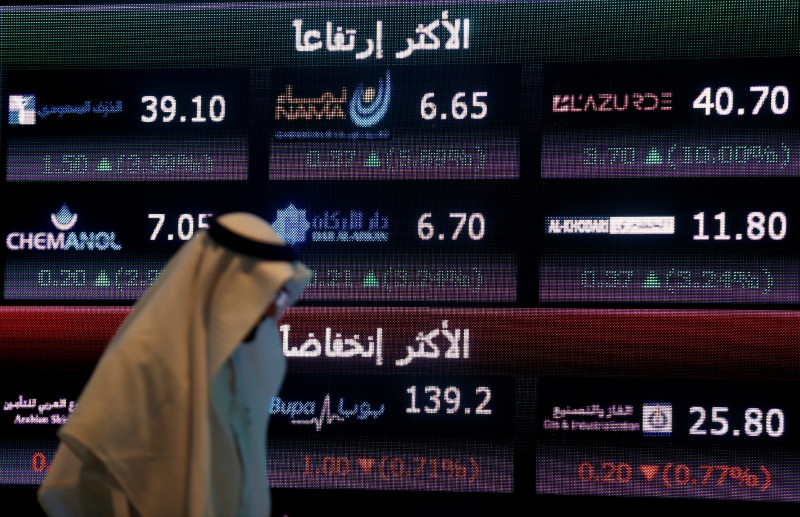DUBAI (Reuters) - Middle Eastern fund managers plan to increase investments in Saudi Arabia in the current quarter, according to a Reuters poll, betting on the kingdom's ability to bounce back from the coronavirus and low oil price shocks.
The region, which has imposed strict lockdown measures as it deals with the outbreak, is home to many oil producers, who have seen the price of their main resource tumble as they spend to help support their economies.
Half of the eight fund managers polled by Reuters said they would increase their allocations in Saudi Arabia, the Gulf's largest economy.
While Saudi Arabia's main stock index (TASI) is down 11% this year, it is up 3.25% this quarter. In a separate Reuters poll this month, the oil producer's GDP was seen shrinking 5.2% this year, before rebounding next year.
"We are looking for opportunities ... across sectors less impacted by both the oil price slump and the pandemic," said Jai Lawrence, asset management analyst at Almal Capital.
While some large companies in Saudi Arabia have taken a hit, the country is "a more diversified market with stock-specific opportunities available, which could be drivers of portfolio returns," said Emirates NBD's Dipanjan Ray, citing the potential merger of the kingdom's banks NCB and Samba.
Overall, fund managers said they were keeping their allocations in the UAE unchanged, because while the pandemic has hurt sectors such as real estate and tourism, the diversified nature of its economy could boost recovery.
"At this stage we believe the Dubai market has already discounted a lot of the negative consequences of the current crisis and there is medium to long-term upside," said Mohamed Jamal of Waha Capital.
Three of the managers polled increased allocations for Kuwait, drawing on its inclusion in the MSCI emerging markets index in November.
They said the timeline of the recovery was uncertain but Emirates NBD's Ray said he expected economic activity to normalise across all sectors over the next 12 months.
He said his firm had invested defensively going into the pandemic crisis, but "we have rotated into high-quality recovery-oriented names."
